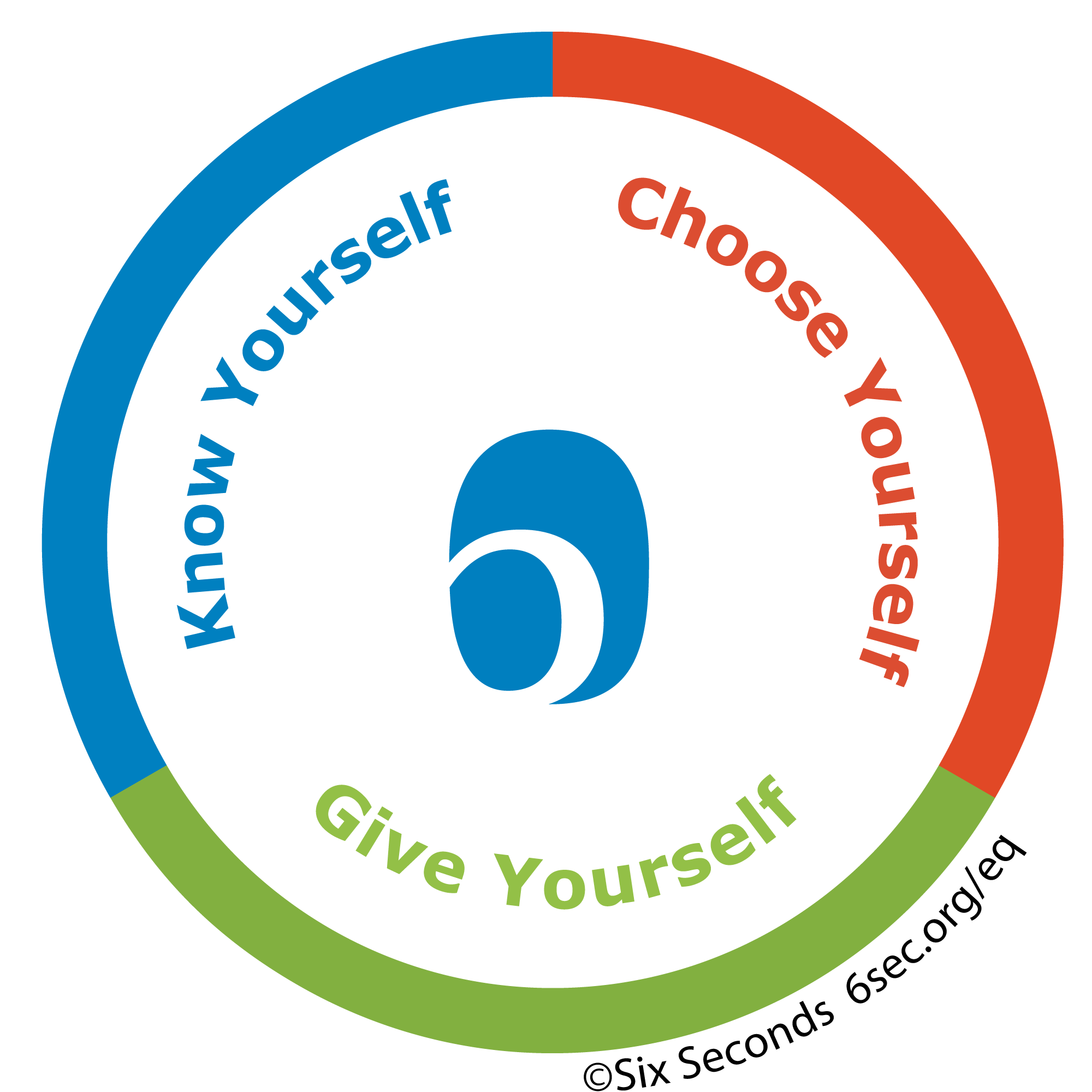What Is
Emotional
Intelligence?
it’s being smarter
with feelings
What Is the Definition of Emotional Intelligence?
Emotional intelligence is the capacity to blend thinking and feeling to make optimal decisions. It’s being smarter with feelings.
In the Six Seconds Model of Emotional Intelligence, it is broken down into 3 pursuits:
- Self-Awareness: Be more aware, by clearly seeing what you feel and do
- Choice: Be more intentional, by doing what you mean to do
- Purpose: Be more purposeful, by doing it for a reason
These pursuits are made measurable and actionable by 8 unique emotional intelligence skills, which are explained below.
To dive right in to how to develop emotional intelligence, here’s a guide.

History of Emotional Intelligence
It can be argued that the study of emotional intelligence began about 2,000 years ago when Plato wrote, “All learning has an emotional base.” But the term emotional intelligence – as a scientifically testable form of “intelligence” – goes back to a seminal article published in 1990 by two researchers, Peter Salavoy and John Mayer. It was later popularized by Dan Goleman in his 1995 book Emotional Intelligence: Why It Can Matter More Than IQ. Inspired by Goleman’s book, in 1997, Six Seconds’ team created a framework for teaching and practicing the skills of emotional intelligence. For more on the history and origins of emotional intelligence, read this article.
Why Emotional Intelligence Is Important
Emotional intelligence is key to having a successful relationship with yourself and others. Numerous studies have linked emotional intelligence to critical life success factors, such as better effectiveness, relationships, wellbeing and quality of life. EQ has been found to be twice as predictive of performance as IQ, though as we’ll discuss below, the two are often incorrectly characterized as mutually exclusive. To learn more about the importance of emotional intelligence, check out A Case for Emotional Intelligence: A Free eBook, or real-world case studies of EQ in action.
Can Emotional Intelligence Be Measured and Improved?
Emotional intelligence is a learnable, measurable, scientifically validated skillset. Six Seconds has developed a suite of tools to measure emotional intelligence at the individual and organizational level, and here is a comparison of different valid emotional intelligence tests. If you’re interested in learning about your own emotional intelligence, we’ve made one of our reports free. Here’s the link to take the world’s leading EQ assessment and get a free, introductory report.
For a deep dive into practical ways to learn and develop emotional intelligence, check out How to Develop Emotional Intelligence.
Want to learn more about your own emotional intelligence?
Take the SEI, the world’s leading emotional intelligence assessment, and get an introductory report for just $5.
8 Measurable, Learnable Emotional Intelligence Skills
As discussed above, the Six Seconds Model of Emotional Intelligence is designed to make emotional intelligence actionable – and not just a theoretical concept.
These 8 measurable, learnable skills form of the basis of the world’s leading emotional intelligence assessment, the SEI. Which do you think are your strengths? Or most challenging areas?
- Enhance Emotional Literacy: Accurately identifying and interpreting both simple and compound feelings.
- Recognize Patterns: Acknowledging frequently recurring reactions and behaviors.
- Apply Consequential Thinking: Evaluating the costs and benefits of your choices.
- Navigate Emotions: Assessing, harnessing, and transforming emotions as a strategic resource.
- Engage Intrinsic Motivation: Gaining energy from personal values & commitments vs. being driven by external forces.
- Exercise Optimism: Taking a proactive perspective of hope and possibility.
- Increase Empathy: Recognizing, connecting with, and appropriately responding to emotions.
- Pursue Noble Goals: Connecting your daily choices with your overarching sense of purpose.
IQ vs. EQ
Is EQ more important than IQ? Honestly, it’s the wrong question. These aspects of intelligence need to work together. Emotional intelligence is an enabler of cognitive development. Looking at the fascinating body of neuro-learning research from Mary Helen Immordino Yang and other cognitive neuroscientists (see Medina’s Brain Rules for a good introduction), a new perspective emerges: at a neurological level, thinking and emotion work together. We don’t “think” with one part of the brain and “feel” with another; the process of learning is built into the very same neural circuits as the process of social-emotional interaction. It’s a myth that we “think” with one part of the brain and “feel” with another. With that said, our educational system has focused almost exclusively on cognitive development, aimed at improving IQ, and the results of this singular focus are predictable. To learn more about the differences and similarities of IQ and EQ, check out: IQ vs. EQ: Why it matters what you measure.
Top Videos on Emotional Intelligence
Check out the top YouTube videos on emotional intelligence, from the world’s largest emotional intelligence non-profit:
Top Articles on Emotional Intelligence
Read about the science and practice of emotional intelligence, with a focus on practical application:
More Emotional Intelligence Resources
Six Seconds is the world’s largest emotional intelligence non-profit. Our mission is to support people to practice and improve emotional intelligence. For a great introduction on how to develop emotional intelligence, here’s a guide.
Subscribe to our newsletter for once-a-week updates:
https://www.6seconds.org/emotional-intelligence/subscribe/
Check out upcoming events:
Check out emotional intelligence products:
